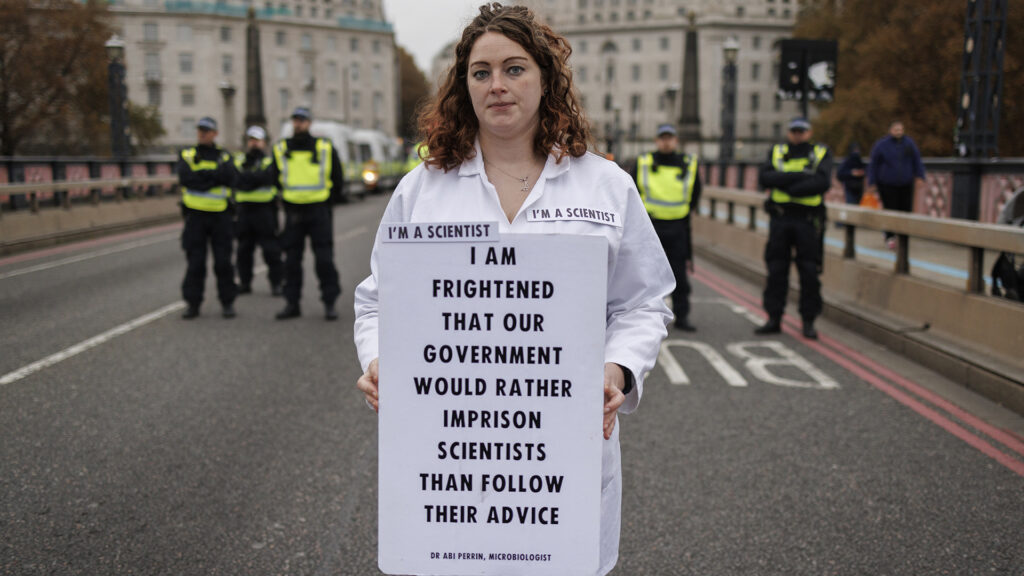In an era where scientific evidence on climate change is often overlooked, two former scholars have taken unique paths to bridge the gap between knowledge and action. With experiences ranging from academia to activism, their stories shed light on the challenges and strategies involved in addressing global climate issues.
From Climate Research to Visual Storytelling
After obtaining a PhD, an individual was granted a Humboldt Fellowship to explore climate science in Germany. Working alongside top-tier researchers, they witnessed firsthand the disregard of essential scientific facts by political leaders. This sentiment was exacerbated during the pandemic, leading to a significant career shift. Dissatisfied with the political landscape and the neglect of scientific research, they left a research position in Sweden to pursue a master’s in photojournalism in London.
The transition to visual storytelling allowed for a new form of expression. A project titled ‘Hope? and how to grieve for the planet’ emerged, capturing the emotional journeys of environmental scientists. This endeavor not only provided a creative outlet but also resonated with others facing similar struggles. “I realized that my work could have an impact, reminding people that it’s OK to feel the way they do,” the researcher noted.
Currently, they focus on documentary photography, scrutinizing the unseen social and environmental consequences of food imperialism. The work combines investigative journalism with a research background, yet no longer relies on policymakers to utilize scientific evidence in climate decisions. Despite the challenges, they choose hope as a guiding principle, stating, “I don’t feel hope, I choose it.”
Activism and Education: A Dual Approach
Chris Jones, a former chemist and science teacher, experienced a similar sense of frustration. Teaching about environmental successes like reversing ozone depletion, while watching global warming intensify, fueled his desire for change. In 2019, Jones transitioned from teaching to activism, after countless discussions with students about climate inaction. His efforts included collaboration with groups like Extinction Rebellion and grassroots initiatives supporting sustainable practices.
Jones participated in a UK tour aimed at raising climate awareness, engaging with both activists and skeptics. The experience highlighted the pervasive issue of disinformation, particularly with the rise of AI. He emphasized the need for clear, direct communication to counteract misleading narratives. “Clarity and directness of communication,” he explained, are vital in addressing the spread of misinformation.
Future climate advocates, according to Jones, must adapt their strategies and remain vigilant against those benefiting from climate change. The arguments opposing fossil fuel divestment often manipulate economic fears, making it crucial to expose their weaknesses and advocate for the economically vulnerable. Convincing politicians to prioritize the needs of their constituents over lobbyists remains a critical task.
Both individuals’ journeys are detailed in the book Scientists on Survival: Personal Stories of Climate Action, where their experiences are shared alongside others committed to climate action. Available for purchase through the Big Issue shop, the book supports both independent bookstores and climate-conscious initiatives.
For those inspired to share their stories or ideas, opportunities to contribute to the discussion are encouraged. Big Issue continues its mission to provide a platform for marginalized voices and support through various means, including magazine purchases and app downloads from the App Store or Google Play.
Original Story at www.bigissue.com
